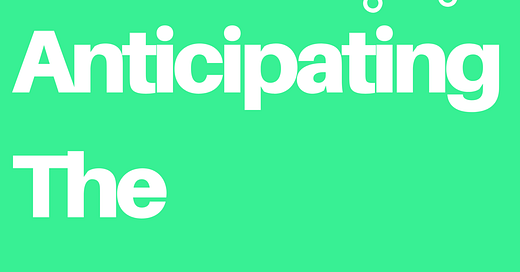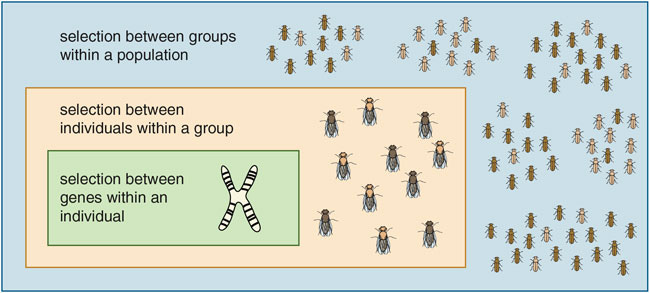While excellent newsletters on specific themes within public policy already exist, this thought letter is about frameworks, mental models, and key ideas that will hopefully help you think about any public policy problem in imaginative ways.
Audio narration by Ad-Auris.
- RSJ
By now many of you must have seen the pictures from the Kumbh at Haridwar. Till last evening, almost 3 million devotees had congregated at the Har ki Pauri for the shahi snaan (how long before we change the word ‘shahi’ there?). A lot has been made about the Covid protocols that were put in place for the Kumbh. It is safe to say it is almost impossible to maintain those protocols for such a crowd.
Like always this has drawn predictable responses.
The ‘liberals’ have compared the way media and many from the current dispensation demonised a markaz that was organised by the Tablighi Jamaat last March and how differently they are covering the Kumbh today. A lot of commentary in the early days of the pandemic last year was about the irresponsible members of the Jamaat who congregated at the time of a pandemic and then blamed them for the spread of the virus in the country. The ‘liberals’ contrast that with the cautious, almost benign, coverage of the Kumbh that has millions risking their lives in a likely ‘superspreader’ event.
The defenders of the Kumbh (right-wing, conservatives or any other label you might apply to them) have their arguments ready. The parallels with the Jamaat event are false. This is a planned event with the administration taking all precautions. Also, the devotees are out in the open which is safer than the enclosed markaz event. I will leave you to see the pictures and draw your own conclusions. Also, there’s the classic conservative defence that’s put up. This is a matter of an individual and their faith. Nobody is coercing them to go to the Kumbh. Our traditions and our culture are our inheritance. These are important for our well-being and they keep us going as a society. As Burke would have put it, some illusions and prejudices are socially necessary.
I’m not interested in the arguments of either side. These are mostly transient and change depending on the context. For instance, I’m almost certain there will be instances of Covid violations during the month of Ramzan which is upon us and during Eid. Then these arguments will flip. And yada yada yada.
What Explains Irrational Behaviour?
The question that interests me is what is the underlying impulse that prompts devotees, adherents of a cult or fanatics of any kind to put the interests or customs of that group over their personal safety and evolutionary instinct for survival? Why do we do stupid things in groups? For a moment leave aside the the sagacity of the government that allows for an event like Kumbh during a pandemic. Ask why have over three million people supposedly taken leave of their senses and gone there?
And that brings me to a topic that sets off evolutionary biologists, sociologists and philosophers on the warpath. The question of Group Selection or what’s has been updated to be called Multilevel Selection Theory.
The overwhelming consensus till the 90s was that natural selection acts on genes. Each gene, or ‘selfish gene’ as Richard Dawkins would put it, tries to perpetuate itself. An individual is the result of the selection of many such selfish genes. Natural selection, therefore, acts in the domain of an individual. Nature selects those genes that are adaptable and individuals with those genes carry them forward for future generations. Others fall by the wayside.
But there was always a separate strand of thinking that stayed in the shadows of evolutionary biology - Group Selection.
Darwin himself had hinted at it in The Descent Of Man:
“Now, if some one man in a tribe, more sagacious than the others, invented a new snare or weapon, or other means of attack or defence, the plainest self-interest, without the assistance of much reasoning power, would prompt the other members to imitate him; and all would thus profit. The habitual practice of each new art must likewise in some slight degree strengthen the intellect.
If the new invention were an important one, the tribe would increase in number, spread, and supplant other tribes (emphasis ours). In a tribe thus rendered more numerous there would always be a rather greater chance of the birth of other superior and inventive members. If such men left children to inherit their mental superiority, the chance of the birth of still more ingenious members would be somewhat better, and in a very small tribe decidedly better.”
The Wilsons And Their Russian Dolls
Anyway, as I said, group selection was not considered seriously by biologists for most of the last century. In the last two decades, however, there’s been a renewed interest no thanks to the works of E.O. Wilson (Harvard U.) and David Wilson (Binghampton U.). For them, evolution is as much a team sport as it is a battle for survival among individuals. An individual with favourable traits passes their genes to the next generations. But this could happen at more aggregated levels of biological hierarchy as well.
Simply put this means there could be certain group-level traits that enable a group to survive or thrive better than other groups. These groups adapt better and perpetuate over generations while others fall away.
The ‘Wilsons’ explained the multilevel selection using the Russian matryoshka dolls (extract below from the American Scientist Sep-Oct, 2008):
“To think clearly about group selection, it is important to compare the survival and reproduction of individuals in the right way. The problem with "for the good of the group" behaviors is that they are locally disadvantageous.
A prudent member of the herd might gain from conserving resources, but cheaters within the same group gain even more. Natural selection is based on relative fitness. If solid citizens are less fit than cheaters within their own group, then something more is required to explain how they can evolve in the total population. That something is a positive fitness difference at a larger scale. Groups of solid citizens are more fit than groups of cheaters.
These interacting layers of competition and evolution are like Russian matryoshka dolls nested one within another. At each level in the hierarchy natural selection favors a different set of adaptations. Selection between individuals within groups favors cheating behaviors, even at the expense of the group as a whole. Selection between groups within the total population favors behaviors that increase the relative fitness of the whole group—although these behaviors, too, can have negative effects at a still-larger scale. We can extend the hierarchy downward to study selection between genes within a single organism, or upward to study selection between even higher-level entities. The general rule is: Adaptation at level X requires a corresponding process of selection at level X and tends to be undermined by selection at lower levels.
This way of thinking about evolution is called multilevel selection (MLS) theory. Although the term "multilevel selection" is newer than the term "group selection," the Russian-doll logic has been present from the beginning, going back to the works of Darwin.”
Back To Kumbh
I have my scepticism about multilevel selection theory. Stephen Pinker wrote a terrific essay - ‘The False Allure Of Group Selection’ - refuting the theory in The Edge (June 2012). The essay and the comments that followed are quite simply the best debate you can read on this topic. It is also a good example of how good the internet can be.
I agree in large parts with Pinker but there are days when I see the events around me and I think this must be group selection at work. That we humans reached where we are today because of certain group traits that worked for us. Empathy, solidarity, the ability to forge a common belief, to work for a unitary purpose or have a shared slate of intentions - these are what made us unique and accelerated our evolution.
Maybe religion works that way for people. It is the most cohesive of groupings (atleast monotheistic religions are).
It is coded within us that coming together and sharing common, deeply held beliefs - about a supreme being, about how the world works or how to lead our lives - all help perpetuate our group. We thrive through these communitarian traditions and practices that are passed down to us over generations than staying apart, fending for oneself alone and letting selection play out at an individual level.
We are programmed to preserve our group traits because intuitively we know they have helped us come this far. They might or might not take us from here to wherever we want humanity to go. But our instincts won’t allow us to abandon what has worked for us so far.
As David Wilson famously put it:
“Selfishness beats altruism within groups. Altruistic groups beat selfish groups. Everything else is commentary.”
That alone can explain why people act in ways that go against their own survival instinct. There is a broader instinct to perpetuate at play. That’s what drives millions to the Kumbh. That is what will drive many to community Eid prayers later this month. That’s why your mom still wants to attend that family wedding in the middle of the pandemic. They aren’t being foolhardy.
They know their importance. They can’t explain it to you.
They just can feel it in their bones.
HomeWork
Reading and listening recommendations on public policy matters
[Video] Jonathan Haidt on The Groupish Gene: Hive psychology and the Origins of Morality and Religion. Haidt is simply a brilliant explainer of multilevel selection theory (as he is of other things).













Share this post